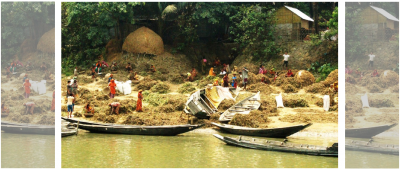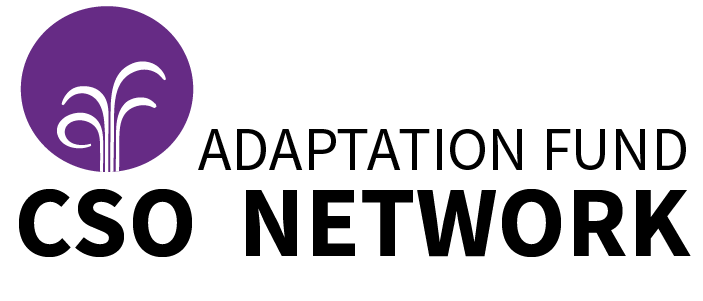Civil society engagement under the Adaptation Fund

The Adaptation Fund NGO Network (AFN) was initiated in 2010 after the first project proposal submitted to the Adaptation Fund by Senegal was approved. The AFN is a social feedback mechanism, in which national civil society organizations accompany the Adaptation Fund project planning and implementation process to ensure positive project impacts for vulnerable groups and communities. It is the AFN's objective to be supportive to the innovative features of the Adaptation Fund such as its direct access modality and its developing country majority in the decision making structure. The AFN has ten financially supported partners1 and more than 130 associated members.
As representatives of the AFN the ten partner organisations have talked to affected communities, particularly most vulnerable groups and communities and have done a great amount of communication work in order to bring the issue of climate change adaptation into public debates and on national agendas in the past five years. Moreover, a number of partners have become valuable resource persons and adaptation experts in their respective countries, shaping national discussions on this particular climate change issue. With their specific focus on the Adaptation Fund they have facilitated stakeholder discussions with national and multilateral implementing entities and in a critically and constructive manner brought forward project ideas and project implementation processes. After all, their lessons and experiences haven been fed into international discussions,inter alia at Adaptation Fund and Green Climate Fund (GCF) Board Meetings as well as official UNFCCC events such as COPs, with the result of rising international recognition and acceptance of the AFN's work.
With a cumulative receipt of around USD 470 million the Adaptation Fund has significantly shaped and advanced the implementation of climate change adaptation in almost 50 developing countries, particularly as direct access modalities have strengthened ownership and built capacities in those countries. As a coalition of NGOs and interested stakeholders following the development of the Adaptation Fund and its funded projects, the AFN strives for a sustainable dynamic influence on politics and the engagement of civil society. For a holistic implementation of adaptation actions that serves the needs of the most vulnerable groups and populations to the impacts of climate change, such an independent non-governmental accompaniment can be very valuable. While it can on the one hand hold national governments accountable to their adaptation efforts, it can at the same time bring a reality-check to decision makers in international funding institutions such as the Adaptation Fund.
This publication provides the reader with a sound overview of the in-country activities of the AFN. It on the one hand portrays the particular project contexts and illustrates how civil society can shape implementation processes of adaptation projects. By presenting lessons learnt from AFN
partner countries we hope to inspire other civil society actors working on climate change adaptation to accompany those projects in a critical and constructive manner.
